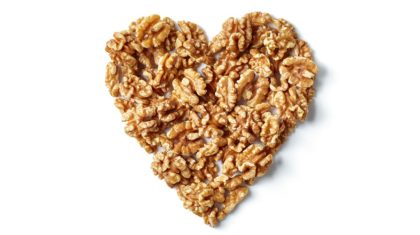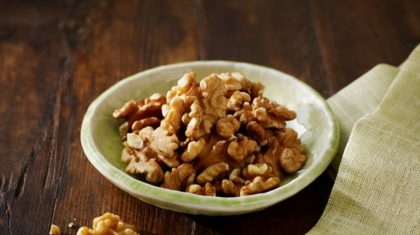110 Woodmere Road, Ste. 250
Folsom, CA 95630
916-932-7070
media@walnuts.org

An updated systematic review from the Harvard T.H. Chan School of Public Health examines 25 years of evidence for the role of walnut consumption on cardiovascular risk factors, including cholesterol, triglycerides, blood pressure, and weight.1 The original meta-analysis, “Effects of walnut consumption on blood lipids and other cardiovascular risk factors:…

A new epidemiological study representing more than 34,000 American adults suggests that those who consume walnuts may have about half the risk of developing type 2 diabetes compared to adults who do not eat nuts.1 According to the study from the University of California, Los Angeles (UCLA), the average intake…

Achieving Wellness through Aging Dr. Michael Roizen, Chief Wellness Officer of the Cleveland Clinic, offers five tips on how to help achieve wellness through aging by focusing on diet, lifestyle and activity. By Dr. Michael Roizen 1. The Scent That Soothes Stress Take some time to smell the roses —…

Diets Rich in Polyunsaturated Fats May Alter Appetite Hormones Among Millennials Did you know that there are specific hormones in the body that help control appetite? Some hormones are responsible for signaling the body to eat, whereas others tell the body it’s full, or satiated. Research has been exploring how…
Some foods just go together. Matches made in culinary heaven like salsa and guacamole or pasta with olive oil and tomato sauce, and of course, rice and beans or a beautiful salad tossed with an herby vinaigrette. You know this already because they are delicious and make sense on the…
An animal study found that mice fed a walnut-rich diet showed a reduction in lipid peroxidation, a process that can damage sperm cells. This form of cell damage harms sperm membranes, which are primarily made up of polyunsaturated fatty acids (PUFAs).1 Previous studies have shown that PUFAs may play a role…
